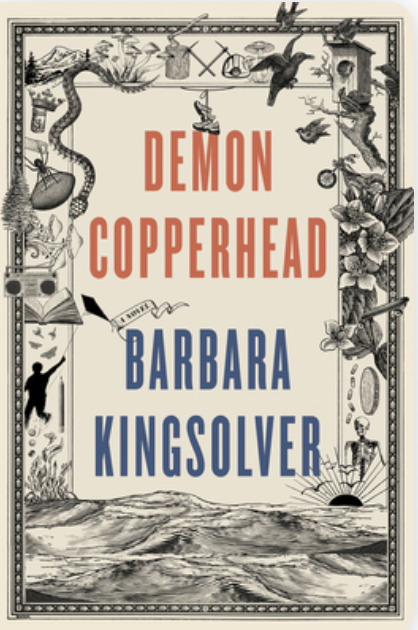
Kingsolver’s Appalachian is an indictment of chld poverty, foster care, and Big Pharma


“Anyone will tell you the born of this world are marked from the get-out, win or lose”. Set in the mountains of Southern Appalachia is the story of a boy, set in 1990, and in early 2000, Demon Copperhead is a contemporary take on David Copperfield, Charles Dickens’ autobiographically inspired novel. Damon Field (nicknamed Demon Copperhead for his red hair) is born to a teenage single mother in Virginia, in a single-wide trailer, with no assets, who after marrying an abusive man, dies of an overdose on Demon’s 11th birthday. “At that time, I thought my life couldn’t get any worse”, Demon tells us. “Here’s some advice: don’t ever think that”. Placed in foster care his first carer forces him into picking tobacco; the next pockets the allowance for Demon’s care, leaving the boy hungry, and takes the wages he earns working at a junkyard-cum-meth lab.
Like Copperfield who tracks down his great aunt after being orphaned, Demon runs away and hitchhikes to Tennessee to find his paternal grandmother, getting robbed blind en route. His luck takes a turn for the better when his grandmother finds a home for him, with a beloved high school football coach and his daughter. As a popular athlete, and encouraged by an art teacher to draw comics, Demon enjoys an interlude of happiness. After sustaining a football injury, a doctor prescribes painkillers, getting him hooked on opioids, fulfilling the prophecy that a “kid born to a junkie is s junkie”. His relationship with Dori a school friend modelled on David Copperfield’s naïve “child-wife” Dora, ends in tragedy. Kingsolver has a keen eye for illustrative detail: when the trailer in which Demon had lived with his mother is scrubbed clean, he laments the loss of two pencil lines on the kitchen wall that proved I once stood taller by a hair than my mom. Her life left no marks on a thing”.
Just as Dickens revealed the appalling conditions of workhouses and schools in Victorian England, Demon Copperhead is an indictment of child poverty and the foster care system in the US. Reading Dickens in school, Demon admires the “seriously old guy” who gets the picture “on kids and orphans getting screwed over nobody giving a rat’s ass”.
In Demon Copperhead, Kingsolver draws attention to the shame of child poverty, the systemic problems with foster care, and the responsibilities of Big Pharma.
Demon inherited his dead father’s good looks and copper-colored hair, a caustic wit, and a fierce talent for survival, In a plot that never pauses for breath, relayed in his own unsparing voice, he braves the modern perils of foster care, child labor, derelict schools, athletic success, addiction, disastrous loves, and crushing losses. Through all of it, he reckons with his own invisibility in a popular culture where even the superheroes have abandoned rural people in favour of cities.
Several generations ago, Charles Dickens wrote David Copperfield from his experience as a survivor of institutional poverty and its damage to children in his society. Those problems have yet to be solved in ours. Dickens is not a prerequisite for readers of this novel, but he provided its inspiration. In transposing a Victorian epic novel to the contemporary American South, Barbara Kingsolver, known for her 1998, bestseller, The Poisonwood Bible, enlists Dicken’s anger and compassion, and above all, his faith in the transformative powers of a good story. Demon Copperhead speaks for a new generation of lost boys, and all those born into beautiful, cursed places they can’t imagine leaving behind. Demon Copperfield is her, 10th novel, takes on opioid addiction, child poverty, and the foster care system, with some prejudice. These issues hit close to home as Kingsolver lives in rural Appalachia, a region exploited by the coal and tobacco industries and disproportionately devastated by the opioid epidemic.
Demon Copperhead by Barbara Kingsolver, Faber £20/ Harper $32.50, 560 pages.
